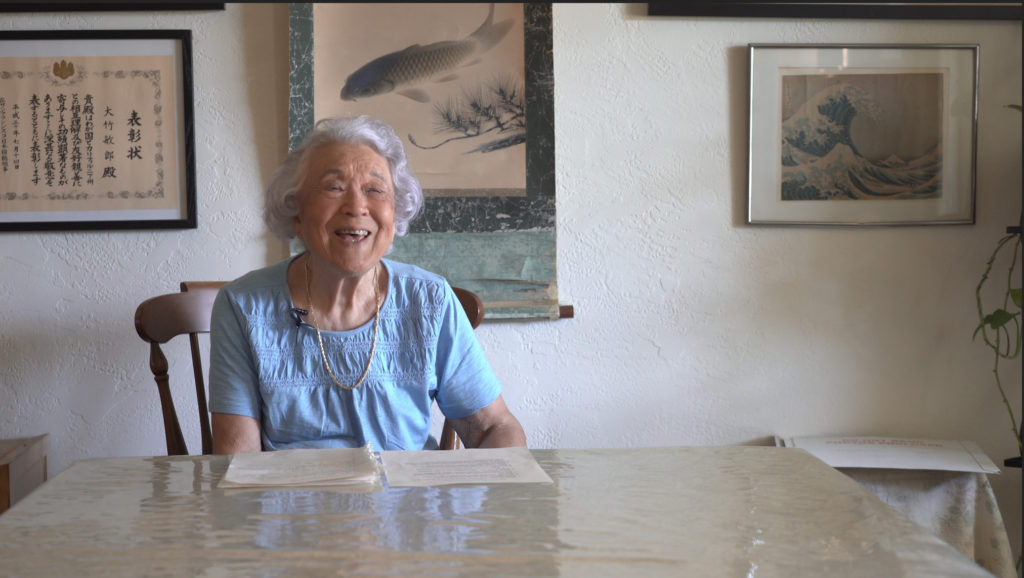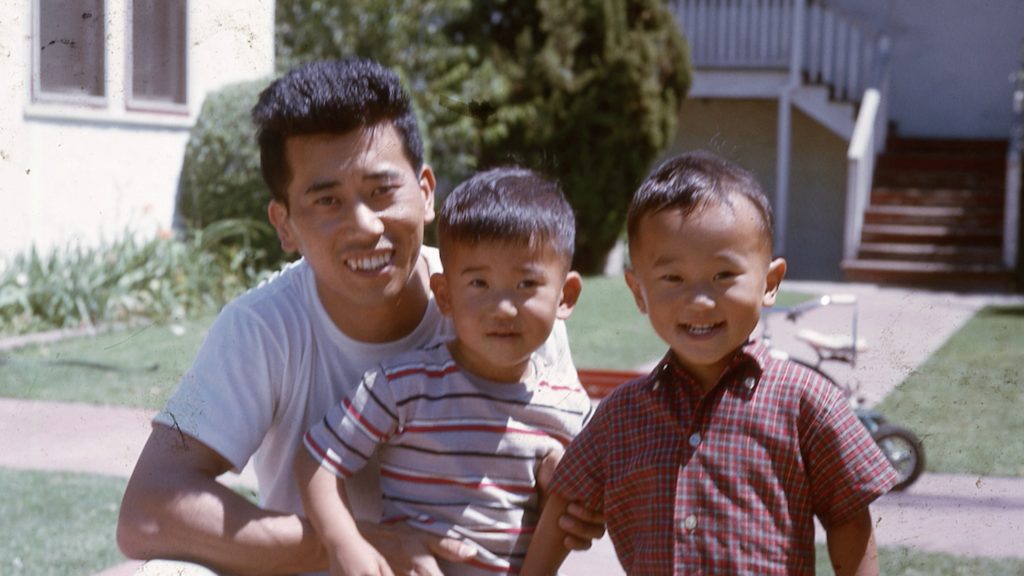With the help of local newspapers, Toshiro and Keiko establish themselves as important figures in Fresno’s Japanese American community, creating social and religious groups that they still lead to this day.
Living across the street from the Fresno Buddhist Church provided easy access to community building.
They also connected with other Japanese people through a unique kenjinkai. Traditionally, kenjinkai are Japanese American social groups meant to unite people who came from the same Japanese prefectures so they could maintain community after moving to America. Fresno lacked established kenjinkai, so Keiko’s father Marumoto Kiichiro and his friend created the Kumamoto shinwa-kai in an effort to unite Japanese people in Fresno regardless of their home prefecture. Toshiro and Keiko remain active members today.
As part of the Seicho-no Ie religion, Toshiro and Keiko value nature, family, ancestors, and one God. Keiko and a Seicho-no Ie teacher named Ueda Minoru formed a religious group in Fresno. Before Mr. Ueda passed away, he asked Toshiro to take over the group. Toshiro accepted and continues to host meetings in their home to this day.


